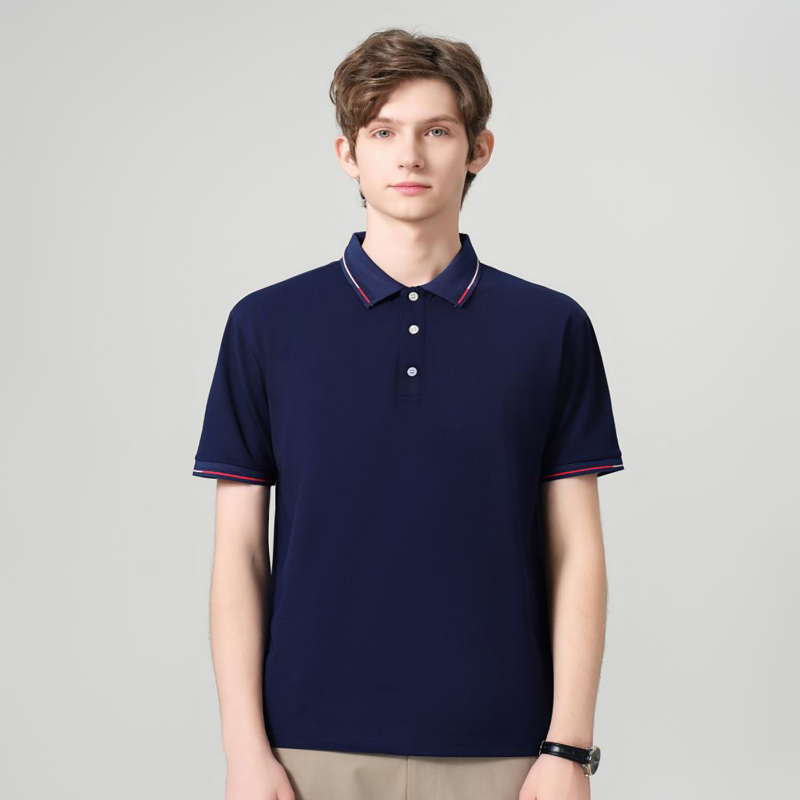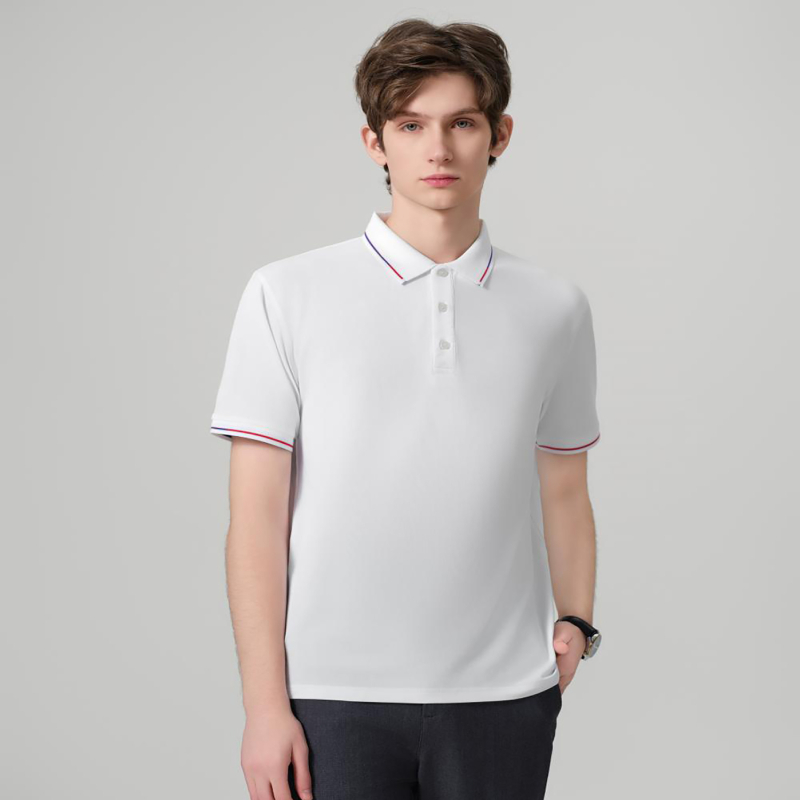- Afrikaans
- Albanian
- Arabic
- Armenian
- Basque
- Belarusian
- Bengali
- Bulgarian
- Croatian
- Czech
- Danish
- Dutch
- English
- Esperanto
- Finnish
- French
- German
- Greek
- Hebrew
- Hindi
- Indonesian
- irish
- Italian
- Japanese
- Javanese
- kazakh
- Rwandese
- Korean
- Kyrgyz
- Latin
- Latvian
- Luxembourgish
- Malay
- Myanmar
- Nepali
- Persian
- Polish
- Portuguese
- Romanian
- Russian
- Serbian
- Slovak
- Spanish
- Swedish
- Tagalog
- Tajik
- Turkish
- Ukrainian
- Uzbek
- Vietnamese
aug . 03, 2025 05:40 Back to list
Polyester Polo Shirts: Durable & Quick-Dry Styles
The apparel industry’s relentless pursuit of comfort, functionality, and style has elevated polyester polo shirts as a cornerstone for modern uniforms, activewear, and corporate branding. In this comprehensive guide, we will demystify the manufacturing process, technical parameters, and real-life application scenarios for both womens polyester polo and mens polyester polo shirts. Special attention is given to the leading product QH-3012- 95% Polyester Fiber 5% Spandex (view product details).

Industry Trends: Why Polyester Polo Shirts Dominate the Market
In 2024, the global polyester polo shirts market is valued at USD 7.1 billion and is projected to reach USD 9.8 billion by 2029 (Statista). This explosive growth is anchored by a surge in demand for high-performance fabric, customization options, and sustainability initiatives. Womens polyester polo and mens polyester polo shirts have become staples in the corporate, athletic, and promotional apparel sectors.

Technical Parameters: Global Polyester Polo Shirt Comparison Table
| Feature | QH-3012 (This Product) |
Typical Cotton Polo | Basic Polyester Polo |
|---|---|---|---|
| Material | 95% Polyester 5% Spandex |
100% Cotton | 100% Polyester |
| Moisture Wicking | Excellent | Low | Good |
| Stretchability | High (Spandex Blend) | Low | Medium |
| Durability | High | Medium | High |
| Color Fastness | ISO 105-C06:2010 Passed | Prone to Fading | Good |
| Wrinkle Resistance | Excellent | Poor | Good |
| Breathability | Good | Excellent | Good |
| Anti-Pilling Test | ISO 12945-2:2000 Grade 4-5 | Grade 3 | Grade 3-4 |
| Price Range (USD/pc) | $4.5 - $7.5 | $5.8 - $12.0 | $3.8 - $6.2 |

The Manufacturing Process of Polyester Polo Shirts: From Raw Fiber to Finished Product
The superior quality of polyester polo t shirts hinges on a well-defined, precision-controlled process. Here we break down the main stages, with reference to standards such as ISO 9001:2015 (Quality), Oeko-Tex Standard 100 (material safety), and ANSI/ASTM D4966 (abrasion resistance testing).
Polyester Polo Manufacturing Flowchart
- Polyester Sourcing & Chip Manufacturing: Pharmaceutical-grade chips, impurity
- Melt Spinning: Polyester chips are melted and extruded under exact temperature (260–270°C) for fiber generation.
- Knitting & Spandex Blending: Blending introduces 5% spandex, ensuring stretch and comfort, especially valued for womens polyester polo.
- CNC Cutting & Sewing: Automated CNC ensures size and seam consistency, reducing defect rate below 0.9% (AQL 2.5).
- Quality Control: Every polo shirt meets ISO 9001 and Oeko-Tex Standard 100 for human-ecological safety.

QH-3012- 95% Polyester Fiber 5% Spandex: Technical Data & Visual Analysis
QH-3012 95% Polyester Fiber 5% Spandex delivers elevated performance, comfort, and adaptability compared to traditional polyester polo shirts. Its advanced knitting and quality control yield shirts suitable for sports, business, and industrial uses.
Key Technical Indicators:
- Material: 95% premium polyester, 5% DuPont spandex
- Weight: 180±5g/m² (as per EN 12127:1997)
- Elasticity: 25% extension, ≤5% permanent set
- Color Fastness to Washing: Level 4–5 (ISO 105-C06:2010)
- Anti-pilling: ISO 12945-2:2000, Grade 4-5
- Dimension Change:
- Needle Type: 32S double-spun, enhanced durability
- Garment Lifespan: 500+ cycles, ANSI/ASTM D4966
Fabric Composition Pie Chart
Spandex 5%
Performance vs. Competitors (Tensile Strength, Moisture Wicking, Lifespan)
Customer Satisfaction Rating

Advantages & Industry Certifications
- Superior Stretch and Shape Retention: Spandex integration delivers comfort for both womens polyester polo and mens polyester polo shirts.
- Long Service Life: Tested for 500+ washing cycles with color, structure, and pilling resistance intact
- Certified by: ISO 9001:2015, Oeko-Tex Standard 100, SGS, TÜV Rheinland, ANSI
- Anti-bacterial & Hypoallergenic: Confirmed by independent third-party testing to inhibit Staph. aureus and E. coli >98% over 24hr
- Wide Industry Usage: Petrochemical, Metallurgy, Water Treatment, Hospitality, Sports and Leisure
- Environmental Sustainability: Production process meets EU REACH and ZDHC discharge requirements

Manufacturer Comparison: Leading Suppliers of Polyester Polo T Shirts (2024)
When sourcing polyester polo shirts, consider vendor manufacturing capacity, global certifications, delivery performance, and customization capability. See the competitive snapshot below:
| Manufacturer | Capacity (pcs/month) | Lead Time | Certifications | Customization |
|---|---|---|---|---|
| XDQH PPE (QH-3012) | 400,000 | 10-18 days | ISO, Oeko-Tex, ANSI | Colors, logo, sizing, fit |
| Gildan Activewear | 900,000+ | 21-35 days | OEKO-TEX, WRAP | Basic |
| Regatta Professional | 300,000 | 14-24 days | ISO, BSCI | Color logo, standard fits |
| Fruit of the Loom | 850,000 | 20-28 days | WRAP, OEKO-TEX | Basic |
Customization Solutions for Polyester Polo Shirts
XDQH PPE delivers end-to-end personalized service, from R&D (3D virtual sampling) to production and after-sales, serving both womens polyester polo and mens polyester polo shirts.
- Fabric: GSM (160–220g/m²), colors (PANTONE), UV-protection finishes
- Logo Method: Embroidery, Digital Print, Heat Transfer
- Fit: Classic, slim, plus sizes, women-specific patterns
- Packaging: Eco-friendly, client branding
- Sampling Speed: 3D design in 2 days, physical sample in 7 days

Application Cases & Customer Experience
Oil & Gas Safety Teams
Challenge: Demanded UV-resistant, anti-static, easy-care polos for rugged environments.
Solution: QH-3012-fabric polos outperformed legacy garments, reducing replacement cost by 28% annually.
Feedback: “After 9 months in field operations, zero color loss and exceptional comfort.”
Corporate Uniforms (Banking Group, 2024)
Challenge: Required consistent logos, color stability across multiple branches.
Solution: Custom dyeing and tight AQL controls ensured every batch matched Pantone® reference.
Feedback: “Custom sizing for both women’s and men’s lines is perfect.”
Sports Team Outfits
Challenge: Sought moisture-wicking, durable polos for high-frequency laundering.
Solution: QH-3012 shirts retained form and wicking after 130+ washes, conforming to ISO 6330.
Feedback: “Athletes report zero irritation, exceptional coolness, even after a full season.”
FAQ: Professional Insights into Polyester Polo Technology
- Q1. What does "GSM" mean in polyester polo shirts, and why does it matter?
- GSM (grams per square meter) measures fabric weight. Higher GSM denotes denser, more durable shirts—ideal for mens polyester polo shirts in professional settings.
- Q2. What technical advantage does the spandex blend bring?
- Spandex provides stretch recovery. In QH-3012, 5% spandex ensures up to 25% elasticity, boosting comfort and active fit, especially for womens polyester polo.
- Q3. How is color fastness tested?
- Color fastness is assessed per ISO 105-C06:2010: fabrics undergo repeated washing at 60°C—Level 4–5 means colors stay vibrant.
- Q4. What does “AQL 2.5” signify in QC?
- AQL (Acceptance Quality Limit) 2.5% ensures that the probability of defective shirts remains extremely low—providing consistent, reliable polyester polo shirts.
- Q5. Are these polos suitable for anti-bacterial or cleanroom needs?
- QH-3012 passes anti-bacterial tests (EN ISO 20743) and is hypoallergenic, making it suitable for clinics, food processing, and labs.
- Q6. What care does polyester polo t shirts require?
- Machine wash cold, tumble dry low. Avoid bleach. Thanks to fabric’s pilling and wrinkle resistance, no ironing or dry cleaning is needed.
- Q7. What sizing standards are available?
- Both EU and US sizing standards available; bespoke fits possible for womens polyester polo and mens polyester polo shirts with MOQ as low as 200pcs/style.
Order Lead Time, Warranty & Support
- Sample Lead Time: 7 days for basic styles, 12 days for custom.
- Bulk Production: 10-18 days after sample approval (for polyester polo shirts).
- Warranty: 12 months against manufacturing defects; lifetime support for fabric consultation.
- Customer Support: 24/7 online, technical troubleshooting, on-site fitment advice for projects over 500pcs.
- Certifications Provided: All necessary ISO, ANSI, Oeko-Tex, FDA material reports available upon request.
Why Choose QH-3012 for Your Polyester Polo Shirts Project?
- Factory-direct price, stringent QC, and customized support.
- Documented case studies (see above) prove sustained performance in both commercial and industrial uses.
- All design/IP secured under NDA for custom orders.
References & Further Reading:
- Statista (2024), “Sportswear Market Size By Material” View Report
- Textile Exchange, “2024 Preferred Fiber & Materials Market Report” Read Article
- TextileLearner.net, "Manufacturing Process of Polyester Yarn" See Details
- ISO 105-C06:2010 Standard - "Textiles — Tests for colour fastness" Read Standard
- Fiber2Fashion Forum, "Comparing Spandex Yarns" Discussion
This is the last article
-
Work Reflective Vest: A Silent Guardian of Security
NewsJul.10,2025
-
Vest Reflective Safety: A Safety Lighthouse in Low Light and High Traffic Environments
NewsJul.10,2025
-
Soft Cotton Polo Shirts: A Fashionable and Practical Choice for Multiple Scenarios
NewsJul.10,2025
-
Soft Cotton Polo Shirts: A Fashionable and Practical Choice for Multiple Fields
NewsJul.10,2025
-
Reflective Vest: The Light of Industry and Outdoor Safety Protection
NewsJul.10,2025
-
Polo Shirt: A versatile and fashionable item that can be worn in one outfit
NewsJul.10,2025




